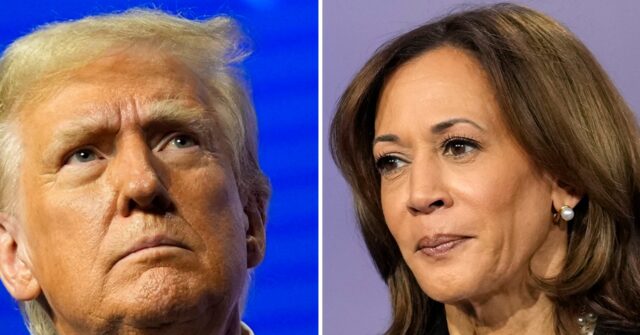As the 2024 election cycle heats up, the economy remains a dominant concern for voters across the United States, influencing their electoral preferences. Recent discussions among political analysts and Democratic strategists reveal that Vice President Kamala Harris is struggling to effectively communicate a compelling economic message. Despite her efforts to criticize former President Donald Trump, many voters seem more interested in substantive discussions about economic performance than in personal attacks, highlighting a misalignment between her campaign messages and public priorities.
The growing sentiment among voters indicates dissatisfaction with the current economic landscape, notably reflected in a Reuters/Ipsos poll that shows Trump outperforming Harris on economic issues with a 46% to 38% lead. Moreover, around 61% of voters in battleground states express concern that the economy is heading in the wrong direction. This pervasive economic anxiety fuels Trump’s appeal, as he positions himself as the candidate with a stronger approach to rectifying economic troubles like inflation and sluggish growth—a concern that resonates deeply with voters who prioritize their kitchen table issues.
Democratic strategists suggest that while Harris’s fierce rhetoric against Trump may excite some bases, it has increasingly fallen short of addressing the real economic concerns that influence voter decisions. Many believe that her approach is insufficient to convey a clear and viable economic vision that aligns with the needs of diverse voter demographics. According to notable donors and analysts, Harris’s economic messaging has not penetrated the public discourse effectively, leaving many voters uncertain about her plans and capabilities regarding economic recovery and stability.
The concerns extend beyond Harris’s communication style; they also point to a broader challenge the Democratic Party faces in connecting with voters’ everyday experiences. The Party’s reliance on criticizing the opposition rather than pivoting to present a cohesive economic vision could undermine their efforts to regain voter trust and confidence. This dilemma has also been observed with President Biden, who previously struggled with similar communication challenges before his decision to step away from the 2024 race.
As political analysts anticipate the unfolding campaign landscape, insights from outlets such as The Hill and Breitbart underline the importance of economic indicators in shaping electoral outcomes. The prevailing narrative indicates that the upcoming election could be heavily influenced by economic performance, as voters gravitate towards candidates who they believe possess a better grasp of the economic issues affecting their lives. Given the high stakes, it is essential for Democratic candidates to adapt and refine their economic messages to resonate with voters, lest they cede ground to Trump and other political rivals.
In summary, the imminent 2024 election amplifies the urgency for Democratic candidates, particularly Vice President Harris, to articulate a clearer and more compelling economic narrative. As current polls demonstrate a significant advantage for Trump on economic issues, addressing voters’ primary concerns will be essential for the Party’s success. Ignoring the voters’ call for meaningful economic discussion risks deepening the challenges Democrats face, potentially leading to unfavorable election outcomes as they grapple with an electorate increasingly focused on economic realities.

